EXPERT
Issues
Locations
DOWNLOAD
Disclaimer: The VRIC Monitor does source a limited amount of media reports from state-owned or -controlled media outlets from VRIC nations. These media reports are carefully selected and solely intended to report on cultural, diplomatic, economic, or military activities that are not reported on by other media and relevant for understanding VRIC influence in the region. Given the inevitability that state propaganda will be mixed into these articles, we ensure that reporting from state-media outlets is no more than 20 percent of the overall VRIC Monitor and exclude any opinion pieces or anti-US (anti-West) declarations of any kind.
OVERVIEW
During a virtual forum at the Atlantic Council in mid-August, the head of U.S. Southern Command, Admiral Craig Faller, said Latin America was “under assault by a vicious circle of threats,” with external state actors as the center of gravity in the Venezuela crisis. Russia, Iran, and China’s role in propping up the Maduro regime has taken Venezuela’s humanitarian situation from a regional crisis to a looming international conflict.
Last year, VRIC nations assembled in the Gulf of Oman and the Indian Ocean to conduct joint naval exercises for the first time. This year, VRIC nations are signing landmark strategic cooperation agreements to solidify diplomatic and commercial partnerships as an extension of their military cooperation. While not perfect, this alignment is shifting the balance of power in Venezuela taking turns shoring up support for the Maduro regime. Since April, Iran has been the most forward-facing ally to Maduro, sending flights, fuel, food, and technicians to the country under the auspices of humanitarian aid and commercial cooperation. The dual-use nature of the Iranian state-owned or -controlled commercial entities involved, however, raises concerns that Iran’s feared clerical army, the Islamic Revolutionary Guard Corps (IRGC) is entrenching itself in Venezuela. A concern highlighted by Colombian President Ivan Duque when claiming that the Maduro regime is looking to acquire missiles from Iran.
As Venezuela’s Maduro regime consolidates its external support, the United States consolidates its strategy for the Americas. On 16-August, U.S. National Security Advisor Robert O’Brien announced the Western Hemisphere Strategic Framework, the Trump administration’s outlined policy priorities for the region. A key focus of the framework is “countering economic aggression and malign political influence” and “reaffirming the region’s commitment to democracy and rule of law.” The new framework was released as O’Brien, Adm. Faller, and other senior U.S. officials traveled to Panama and Colombia to shore up support and announce U.S. plans to move American manufacturers out of China and into Latin America and the Caribbean, bringing an estimated $30 to $50 billion in investment to the region.
This is much-needed support, as the region faces a grim economic forecast of 9.4% contraction according to the International Monetary Fund and a shift towards more authoritarian policies. Bolivia’s exiled former President Evo Morales is threatening a comeback to the country; Venezuela is heading toward another sham election; Ecuador’s Rafael Correa has placed his name on the ballot as a vice-presidential candidate for the February 2021 election; and Nicaragua’s Ortega-Murillo regime is suppressing opposition forces, once again. Argentina and Mexico provide shadow support to the Bolivarian Network, while Russia, Iran, and China extend diplomatic reinforcement. China’s new national security law may begin to play an important role in consolidating authoritarian leaders in Latin America, with extradition under the new law threatening to punish dissidents against the Chinese Communist Party.
MUST READS:
- Iran and Venezuela’s strategic challenge to sanctions by Joseph Humire, The Hill
- How likely is an Iranian missile transfer to the Maduro regime? interview of Joseph Humire, El Tiempo in Colombia (in Spanish)
- Venezuela is a threat to Latin America interview of Joseph Humire, CNN Español (in Spanish)
- Venezuela’s Crime-Terrorist Convergence by Jose Gustavo Arocha and Joseph Humire, Center for a Secure Free Society
- The Maduro Regime’s Illicit Activities: A Threat to Democracy in Venezuela and Security in Latin America by Douglas Farah, Atlantic Council
- How the US is shutting down Venezuela’s socialist-thug drug biz by Robert O’Brien, NY Post
- Debunking the Legal Argument Against a U.S. Snapback by Richard Goldberg, Foundation for Defense of Democracies
- The UN Insecurity Council by the Wall Street Journal Editorial Board
- Restoring democracy in Nicaragua: Escalating efforts against the Ortega-Murillo regime by Ryan C. Berg, American Enterprise Institute
- U.S. riots take a page from Latin American Socialist playbook by SFS Senior Fellow David Grantham, Breitbart News
TRUMP ADMINISTRATION ON VENEZUELA
- WHITE HOUSE: Overview of Western Hemisphere Strategic Framework
- JUSTICE: Largest U.S. Seizure of Iranian Fuel from Four Tankers
- JUSTICE: U.S. Seizure of Three Websites Used by Iranian Front Company that Was Shipping Fuel on Four Tankers to Venezuela
- TREASURY: Treasury Designates Key Actors in Mahan Air Illicit Procurement Operations
- TREASURY: U.S. imposes sanctions on Venezuelan brothers over support for Maduro
- STATE: U.S. Relations With Venezuela
- STATE: Joint Declaration of Support for Democratic Change in Venezuela
- STATE: Public Designation of Former Officials of the Illegitimate Maduro Regime Due to Involvement in Significant Corruption
- STATE: The State Department Takes Action and Calls for Information To Bring Venezuelan National Maikel Jose Moreno Perez to Justice
- STATE: Briefing With Special Representative for Venezuela Elliott Abrams On Recent Developments in U.S.-Venezuela Policy
- SOUTHCOM: Venezuela’s Maduro at Center of ‘Vicious Circle of Threats’
- SOUTHCOM: Telephonic Press Briefing with U.S. Southern Command’s Civilian Deputy to the Commander and Foreign Policy Advisor, Ambassador Jean Manes, and Director of Operations, Rear Adm. Andrew Tiongson
- ATLANTIC COUNCIL: Transcript: Countering the Maduro regime’s global web of illicit activities
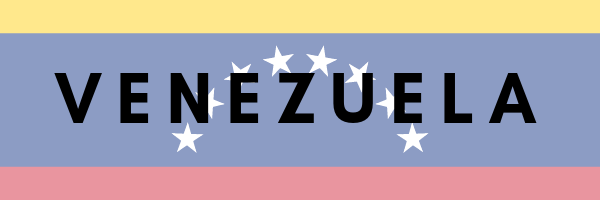
Previous VRIC Monitors detailed the arrival of fuel and food shipments from Iran to Venezuela. Of the ten vessels that sailed west with this cargo in May/June, only six arrived while four were stranded at sea. In mid-August, the U.S. seized the 1.1 million barrels of gasoline on the four Liberian-flagged tankers from Iran that never made it to Venezuela, in what the Justice Department called the largest seizure of Iranian fuel to date. The concern with these shipments to Venezuela is the dual-use nature of the Iran state-owned or -controlled commercial entities involved, all sanctioned by the U.S. for its ties to the Islamic Revolutionary Guard Corps (IRGC).
Meanwhile, the Maduro regime’s special envoy to Iran, Alex Saab, continues battling a potential extradition to Florida where he is wanted for eight counts of money laundering. Saab’s legal team has almost exhausted all its arguments to free Saab from detention and avoid extradition, while the Cape Verde authorities have resisted any efforts to co-opt the judicial process by the Maduro regime or its allies. For instance, a letter written earlier in August by Saab himself to the Cape Verde Prime Minister asked for his release stating he has lost 20 pounds and offered a sort of soft bribe stating that Venezuela would offer Cape Verde “more opportunities” if authorities released him. “I can help Cape Verde more than the United States will do in 100 years,” Saab concluded in his letter.
As external forces continue to exacerbate transregional threats in Latin America, the region remains vulnerable to destabilization efforts. In Venezuela, Interim President Juan Guaidó is attempting to unify opposition elements to hold a referendum instead of the Maduro-regime controlled parliamentary elections slated for December. Bolivia is in a state of chaos as Evo Morales and his proxies orchestrated protests and roadblocks impeding the delivery of oxygen to hospitals, in what was deemed as crimes against humanity. In Colombia, the house arrest of former President Alvaro Uribe has further polarized the country setting the stage for protests later in the year. Lastly, Nicaragua, too, is experiencing another round of crackdowns on opposition protests as the Ortega-Murillo regime exerts its authoritarian control.
- The Maduro regime announced it would free 110 political opponents, some of whom have been in detention for months. Communications Minister Jorge Rodríguez said Nicolás Maduro had issued a decree to that effect which would come into force immediately. – Yahoo News on 01-SEPT
- A former Venezuelan oil official fled the country and is talking to U.S. authorities about aiding their investigation of a high-level corruption scheme that helped plunge the oil-rich nation into an economic meltdown. – Bloomberg on 31-AUG
- Venezuela’s Cardon refinery has stopped producing gasoline because its reformate unit has shut down, according to a union leader and two other people with knowledge of the situation. – Reuters on 30-AUG
- A Colombian businessman detained in Cape Verde in June was on a mission to Iran as a special envoy of Maduro to negotiate fuel and humanitarian supplies at the time of his arrest. – Reuters on 28-AUG
- Venezuelan officials are denouncing people who may have come into contact with the coronavirus as “bioterrorists” and urging their neighbors to report them. The government is detaining and intimidating doctors and experts who question the president’s policies on the virus. – New York Times on 19-AUG
- U.S. authorities intercepted a suspicious airplane leaving Florida, discovering weapons and thousands of dollars in cash on board. Agents arrested two Venezuelans, whose identities have not been revealed, and seized 18 assault rifles, six shotguns, 58 semi-automatic pistols, $20,312 in cash, and $2,618.53 in endorsed checks. – Straits Times on 19-AUG
- U.S. Customs and Border Protection (CBP), Air and Marine Operations (AMO) Homeland Security Investigations (HSI), the Federal Aviation Administration (FAA), and CBP’s Office of Field Operations (OFO), conducted an outbound investigation of a suspicious aircraft on Saturday, August 15th, locating a weapons stockpile along with a large amount of U.S. currency. – US Customs and Border Patrol on 18-AUG
- In a new setback for Alex Saab, Cape Verde deported one of his lawyers. Local authorities confirmed that they expelled one of the members of the team led by former Spanish judge Baltasar Garzón. – Infobae on 16-AUG (content in Spanish)
- Maduro has been building alternative cross-border payment systems to bypass the sanctions imposed by the United States against the regime. Options that have been proposed so far, include the Financial Message Transfer System (SFPS) and China’s International Payment System (CIPS). – Venezuela Politica on 14-AUG (content in Spanish)
- Crypto media is a buzz with reports of Venezuela now accepting crypto for tax payments. The government, however, only has plans to use the petro to calculate tax payments. This allows Venezuela’s government greater access to U.S. dollars, even if indirectly. – Decrypt on 12-AUG
- A court in the West African nation of Cape Verde has approved the extradition of Colombian businessman Alex Saab to the United States, where he faces charges involving money laundering on behalf of Venezuela’s socialist government. – Voice of America on 04-AUG
- Authorities in Colombia have seized a luxury mansion complete with a spa, tennis court, and two pools allegedly belonging to a businessman Alex Saab detained in Cape Verde on U.S. corruption charges related to Nicolás Maduro. – Associated Press on 23-JUL
- The Embassy of the Bolivarian Republic of Venezuela to the Kingdom of Spain announced that a special Madrid-Caracas flight has been authorized for Tuesday, July 21, 2020, by Plus Ultra airline. – La Patilla on 17-JUL (content in Spanish)
- The seizure of a fleet of luxury cars in Florida bound for Venezuela has shown how officials and allies of Maduro are still seeking to sidestep U.S. sanctions to develop a range of illicit schemes. – InSight Crime on 13-JUL
- Since the U.S. Treasury’s Office of Foreign Assets Control intensified the pressure on global shipping to comply with sanctions policies on Venezuela, shipowners and operators have adopted a more risk-based approach to business. – Lloyd’s List on 07-JUL
THE BOLIVARIAN NETWORK
- Bolivian Deputy Minister of Internal Affairs, Javier Issa, said that there are many armed groups in the country trying to generate chaos and attack democracy. – El Deber on 30-AUG (content in Spanish)
- A former official fires a legal missile at Mexico’s political class. Emilio Lozoya’s explosive allegations of corruption will test the country’s institutions and its president. – The Economist on 29-AUG
- Bolivia’s interim President Jeanine Añez said that ex leader Evo Morales, who lives in exile in Argentina, must respond to accusations that he had sexual relations with two minors. – Yahoo News on 28-AUG
- Activist Haydee Castillo, a member of the organization called “Nicaraguans in the World,” warned that the new wave of abductions of opposition members could be because the Ortega regime is preparing for a “negotiation” scenario. – El Confidencial on 18-AUG
- Indigenous protesters blocked a key Brazilian grain highway again after a six-hour pause to allow a long line of trucks carrying corn to pass, and planned to stay there for another 24 hours before obeying a court order to leave. – Reuters on 18-AUG
- Anti-government protesters in Bolivia blockaded some of the country’s main roads to challenge the delay of general elections and rebuke the government’s poor response to the coronavirus pandemic. – New York Times on 07-AUG
- Colombia’s most powerful politician, former President Álvaro Uribe is now under house arrest, drawing the country back into the pitched political battle it had been trying to overcome for years. – New York Times on 07-AUG
- Mexico might seek to change the constitution in the second half of the current administration to bolster state oil firm Petroleos Mexicanos (Pemex) and national power company the Comision Federal de Electricidad, the president said. – Nasdaq on 29-JULY
- The United States Treasury sanctioned one of Nicaraguan President Daniel Ortega’s sons and Vice President Rosario Murillo, as well as his communications company, for alleged ties to drug trafficking. – Associated Press on 17-JUL
- Nicaraguan President Daniel Ortega has been absent from public view for a record number of days: 35 since June 10th. Ortega has been frequently absent since he took office thirteen years ago, but his two absences during the pandemic have been his two longest disappearances. – El Confidencial on 15-JUL (content in Spanish)
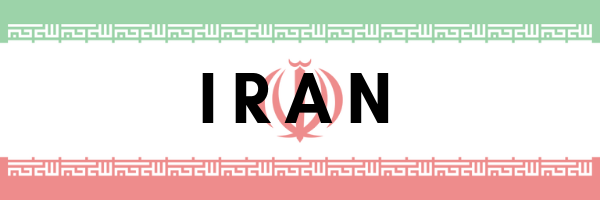
President Ivan Duque of Colombia highlighted the concern of Iranian presence in Venezuela, recently revealing that the Maduro regime is looking to acquire medium-to-long-range missiles from the Islamic Republic. In a clear violation of international sanctions, Iran and Venezuela are joining forces in a victimization strategy aimed at delegitimizing U.S. sanctions. The White House has reacted by combining efforts against both regimes, through the dual-appointment of Elliott Abrams as the special envoy to Iran, replacing Brian Hook, in addition to being the special envoy to Venezuela, a position he has held since January 2019.
President Duque’s claims included information that Russian (and Belorussian) weapons are arriving at the hands of irregular armed groups along the Colombia-Venezuela border, amidst unverified reports that Iranian and Russian technicians are positioning themselves at the border.
As the United Nations (UN) arms embargo is set to expire on 18-October, Iran is working overtime at legitimizing its defense industry. A key 25-year strategic pact signed with China worth upwards of $400 billion, aims to achieve this through future arms deals between Tehran and Beijing. The U.S. request for snapback sanctions, under Security Council Resolution 2231, moves to neutralize Iran, setting up a legal battle at the UN over Iranian arms shipments. A situation that Iran will likely exploit through its strategic partnership with Venezuela.
Serving as a conduit for Tehran’s sanctions-busting schemes, the Iran-Turkey relationship has seemingly strengthened in its opposition to the UAE-Israel rapprochement. After attending the inauguration of the new President Luis Abinader in the Dominican Republic, and signing seven bilateral agreements in Haiti, the Turkish Foreign Minister Mevlüt Çavuşoğlu visited Nicolás Maduro in Caracas and donated a large supply of coronavirus aid to the country. In 2018, joint Turkey-Venezuela state-owned mining firms were sanctioned by the U.S. for helping the Maduro regime evade sanctions.
- Tehran is one of the main supporters of the Maduro regime and has already become one of its largest commercial partners in the fuel, health, and food sectors. The West fears that Iranian weapons will arrive in Caracas as a product of this alliance. – Infobae on 30-AUG (content in Spanish)
- State media reports a total of 30 tons of goods arrived in Venezuela from India and the Islamic Republic of Iran to strengthen the national productive apparatus, reported the Venezuelan Consortium of Aeronautical Industries and Air Services (Conviasa). – VTV on 29-AUG (content in Spanish)
- An Iranian-flagged vessel loaded a cargo of alumina in Venezuela this month after delivering supplies for an Iranian supermarket in the South American nation, three sources familiar with the shipment said, in the latest sign of closer ties between the U.S.-sanctioned nations. – Reuters on 27-AUG
- State media reports head of Iran’s National Union of Agricultural Products Seyed Reza Nourani said that following the development of political and trade relations between Iran and Venezuela, the two countries will emphasize the development of non-oil exports, especially food and agricultural exports, as well. – Mehr News on 25-AUG
- Maduro thanked ally Iran for helping the South American country overcome U.S. sanctions on its oil industry and floated the idea of purchasing missiles from the country. – Reuters on 23-AUG
- Intelligence agencies from at least three countries, including Colombia, say Maduro’s regime is negotiating with Iran for weapons to respond to possible attacks. The alert was issued by President Ivan Duque, who added that they were medium- and long-range missiles. – El Tiempo on 22-AUG (content in Spanish)
- “Venezuela and Iran have the right to trade freely and exchange the products we want… Rohani, here we are brother, for whatever you need.” These are just some of the phrases Maduro has said recently regarding his alliance with Iran. – El Tiempo on 21-AUG (content in Spanish)
- All sanctions against Iran that were suspended under the 2015 nuclear deal will resume in 31 days under a process Secretary of State Mike Pompeo started, a move that is exposing deep divisions between the United States and other countries on the U.N. Security Council and could spell the death of the landmark agreement. – Washington Post on 20-AUG
- Four tankers whose fuel was seized by the U.S. over the past month were heading to Venezuela and carrying gasoline loaded in Iran, according to Iranian Oil Minister Bijan Namdar Zanganeh. – Bloomberg on 17-AUG
- State media reports Maduro said “deep, brotherly, and unbreakable relations have been formed between [Iran and Venezuela] during recent years and have been boosted through defending sovereignty,” in a statement on the occasion of the 70th anniversary of Iran-Venezuela diplomatic ties. – Tehran Times on 10-AUG
- President Trump’s Iran envoy, Brian Hook, is stepping down, Secretary of State Mike Pompeo confirmed. He will be replaced with Venezuela envoy Elliott Abrams, a noted Iran hawk who will serve in both roles. – Axios on 06-AUG
- State media reports Iranian Ambassador to Brasilia Hossein Gharibi met and held talks with Brazilian Parliament Speaker Rodrigo Maya on the expansion of bilateral relations. During the meeting, the two sides stressed the need to maintain and expand bilateral relations in all fields, as well as the interaction and role of the parliaments of the two countries in promoting and diversifying bilateral economic relations. – Mehr News on 01-AUG
- A supermarket opened in Caracas– not normally a newsworthy event. But it is the first one owned by a company in Iran, one of the few countries helping Maduro evade U.S. sanctions. – Bloomberg on 30-JUL
- State media reports Iranian Ambassador to Brazil Hossein Gharibi expressed Iran’s readiness for developing economic relations in a meeting with Governor of the State of Paraná Ratinho Júnior. During the meeting both sides discussed ways to promote trade relations, especially in agricultural and petrochemical fields. – IRNA on 27-JUL
- State media reports in a meeting at the Iranian Ministry of Science, officials of Iran and Uruguay agreed to expand scientific and technological ties and exchange knowledge by linking science parks. – Mehr News on 23-JUL
- State media reports Iranian President Hassan Rouhani has offered congratulations to the Nicaraguan nation and government on the 41st anniversary of the victory of the country’s Sandinista Revolution. – Iran Front Page News on 19-JUL
HEZBOLLAH
- Brazil’s government sent a humanitarian mission to Lebanon in the wake of the August 4th explosion in Beirut that injured thousands. Former President Michel Temer, whose parents were Lebanese, led a group of 13 people that included politicians, military personnel, and businessmen to deliver aid to the Middle Eastern nation. – Associated Press on 12-AUG
- Brazilian authorities extradited Hezbollah financier Assad Ahmad Barakat to Paraguay, dealing a key blow to the terrorist group. Barakat, now awaiting trial, served as Hezbollah’s leader in the Tri-Border Area of Argentina, Brazil, and Paraguay (TBA). – Foundation for Defense of Democracies on 22-JUL
THE NISMAN/AMIA CASE
- Following Prosecutor Marcelo Colombo’s request to Federal Oral Court 8 (TOF 8) for progress towards the start of the MOU trial, with main defendant Cristina Kirchner, the judges decided to subpoena more than 300 witnesses. Before the hearings began, Ronald Noble was cited as a witness responsible for the red alerts on the Iranians charged with the AMIA bombing. – Clarin on 21-JUL (content in Spanish)
- Secretary of State Mike Pompeo affirmed that the U.S. government was continuing to exert “maximum pressure on Iran” to bring to justice the operatives behind past terrorist atrocities in Argentina and Bulgaria. – Algemeiner on 20-JUL
- Remembrance and Justice: A Special Conversation with the President of Argentina, H.E. Alberto Fernández, on the 26th Anniversary of the AMIA attack. – AJC on 16-JUL
TURKEY
- “The regime of Nicolás Maduro uses Turkey to triangulate its illicit business with Iran,” Joseph Humire, a specialist in international security and executive director of the Center for a Free and Secure Society, told PanAm Post. – PanAm Post on 20-AUG (content in Spanish)
- Turkey’s Foreign Minister Mevlut Cavusoglu said that his country has an interest in expanding relations with the Dominican Republic and revealed that he touched on the issue with President Luis Abinader on the day of his inauguration. – El Caribe on 19-AUG (content in Spanish)
- State media reports Turkey has delivered medical equipment to Venezuela to help the crisis-stricken country to deal with the novel coronavirus pandemic as Foreign Minister Mevlut Cavusoglu visited Caracas seeking to deepen bilateral ties. – TRT World on 18-AUG
- Turkey and Venezuela have a few things in common. There is an economic relationship- the murkier aspects have attracted the scrutiny of the U.S. Treasury Department and there is solidarity in their anti-U.S. rhetoric, even if the United States is a key trading partner of Turkey. The personal relationship between the leaders of Venezuela and Turkey is warm, partly forged by mutual words of support during domestic attempts to force them from power. – Associated Press on 18-AUG
- State media reports Turkish diplomat, Mevlut Cavusoglu, to launch a 3-day Latin America tour to meet counterparts and leaders from the U.S., the Dominican Republic, Haiti, and Venezuela. – Anadolu Agency on 15-AUG
- State media reports Turkey and Haiti sign seven agreements to expand relations in all fields. – TRT on 08-AUG (content in Spanish)
UAE
- The Trump administration slapped fresh sanctions on two United Arab Emirates-based companies for providing material support to Iran’s largest airline, the Treasury Department said. Parthia Cargo and Delta Parts Supply FZC provided parts and logistics services for Iran’s Mahan Air, which is currently blacklisted by the U.S. – CNBC on 19-AUG
QATAR
- Qatar’s monarchy allegedly financed weapons deliveries to the global terrorist group Hezbollah, endangering the nearly 10,000 U.S. troops stations in the emirate. – Fox News on 05-AUG
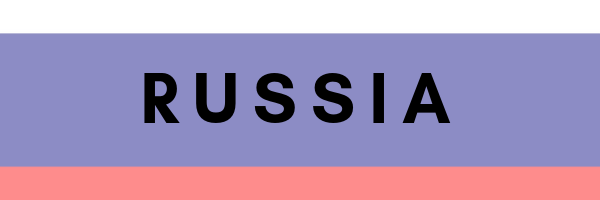
On the heels of the 25-year Iran-China cooperation agreement, Iran and Russia are talking about extending its long-term strategic deal, which expires in seven months (March 2021). Tehran’s ambassador in Moscow called on China and Russia to form an anti-sanctions club to withstand pressure from Washington, while all three countries embrace the Maduro regime in Venezuela.
Meanwhile, Russia is solidifying its diplomatic presence in other countries throughout the region, donating medical aid to Peru and Nicaragua, among others, and attempting to legitimize its new Sputnik V coronavirus vaccine in Venezuela through hand-picked volunteers. Nicolás Maduro praised Russia’s new vaccine, stating he will be the first to take it, as seven Latin American countries – Argentina, Bolivia, Ecuador, Uruguay, Paraguay, Honduras, and El Salvador – are slated to be the first to receive shipments of the new Russian vaccine. These overtures have helped cover Russia’s military movements in the region. Russian troops reportedly headed to an unidentified Latin American country were detained in Belarus days before an election, while 11 Russian anti-aircraft defense systems scattered throughout Venezuela have gone largely under-reported.
- Maduro has announced he will be asking for volunteers to test the COVID-19 vaccine developed by Russia, who was the first country to officially register a vaccine against the coronavirus on August 11th. But experts have questioned whether it has undergone the necessary testing. – BBC on 31-AUG
- State media reports Bolivia’s SIGMA pharmaceutical company registered Russia’s Avifavir drug as effective as a COVID-19 treatment and its first batch should arrive in the country in September. – Prensa Latina on 28-AUG
- State media reports the Nicaraguan government awarded the José de Marcoleta Order in the Degree of Grand Cross to the ambassador of the Russian Federation, Andrei Budaev, on the occasion of the end of his mission in this country. – Prensa Latina on 28-AUG (content in Spanish)
- Mexico will receive at least 2,000 doses of Russia’s potential COVID-19 vaccine, dubbed Sputnik V, to test among its population, a senior Mexican government official said. – Reuters on 20-AUG
- State media reports Nicolás Maduro has said he will be the first to get vaccinated when a Russian COVID-19 vaccine arrives in the country. – Anadolu Agency on 17-AUG
- State media reports Russia allocated some 10 million dollars to the United Nations World Food Program (WFP) to finance the development of sustainable school feeding systems in Cuba and Nicaragua. – Prensa Latina on 17-AUG
- State media reports Maduro sent greetings to Aleksandr Lukashenko on the victory in the presidential election in Belarus. – Belta on 11-AUG
- A Russian diplomat said a group of more than 30 suspected Russian mercenaries, detained in Belarus last week, were only passing through Minsk and were on their way to an unnamed Latin American state. – Reuters on 03-AUG
- The former mayor of Caracas, Antonio Ledezma, reports the presence of eleven state-of-the-art anti-aircraft defense systems in different states of the Caribbean country. – ABC International on 21-JUL (content in Spanish)
- The Russian State Duma at a meeting on Tuesday ratified a bill to restructure the loan issued to Venezuela. The third restructuring in the last 4 years will again delay the repayment of the debt principal, which at the beginning of this year was $3.4 billion. In the next three years, Venezuela will repay only interest on the loan – two tranches a year for 66.5 million dollars each, according to a document posted on the Duma’s website. – UAWire on 15-JUL
- The new Paraguayan Board of Directors of the Chamber of Senators received the ambassador of the Russian Federation, Nikolay Tavdumadze, and the ambassador of the Argentine Republic, Domingo Peppo, to discuss bilateral relations between the countries. – La Nación on 17-JUL (content in Spanish)
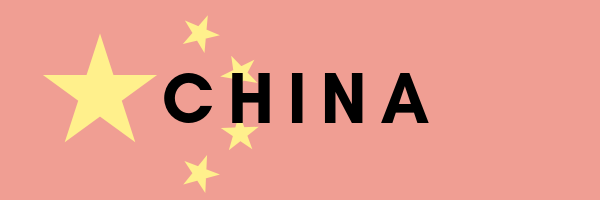
As the U.S. shores up support from Latin America unveiling a new strategic framework for the region, China becomes more aggressive. Buenos Aires is facilitating Beijing’s aggressive advances in South America, with the cessation to China of strategic ports, a nuclear facility, and a military-run satellite station in Argentina. Stalled during the Macri government, China’s joint venture in space exploration with Argentina has resumed with President Alberto Fernandez at the helm and starts with a 494-acre space station in Neuquen province that China controls for 50 years.
Elsewhere in the region, Ecuador’s Galapagos Islands have experienced an unprecedented amount of illegal fishing from hundreds of Chinese vessels. U.S. Secretary of State Mike Pompeo has cited malicious activity by these ships, including “disabling their tracking systems, changing ship names, and leaving marine debris.” Meanwhile, China’s sabre-rattling in the South China Sea came to a head when the PRC fired missiles in late-August into the sea as a warning to the United States.
The PRC is emboldened by the new Hong Kong national security law and ratification of its extradition treaties with other nations. The first extradition under the new law took place in the Dominican Republic, where state media reports a fugitive is being repatriated to China. This aggressive posture by the PRC has turned some countries in the region away from China’s advances, noting that Chile has recently opted for a Japanese-planned subsea cable, Paraguay resists pressure to abandon Taiwan, and Brazil pushes back against the intrusion of Chinese telecommunications firms.
- China’s government reinforced its alliance with Argentina by inviting Alberto Fernández to deliver a message with Xi Jinping. The speeches are scheduled for the opening of a business fair that will take place on September 4th in Beijing. Fernández is the only Latin American invited to speak. – Clarin on 01-SEPT (content in Spanish)
- Chinese company, Shanghai Dredging, is interested in managing the Paraná–Paraguay waterway, a crucial Argentine shipping route, which connects Brazil, Bolivia, Paraguay, Argentina and Uruguay. – Dialogo China on 28-AUG
- State media reports Cuban senior representatives detailed the opportunities the country offers to expand bilateral cooperation and business with the Chinese municipality of Chongqing (central China) in multiple socio-economic sectors. – Prensa Latina on 28-AUG
- The Chinese embassy in Brazil snapped back at an article penned by the U.S. undersecretary for economic growth, energy, and the environment, Keith Krach, published by Brazil’s O Globo, which called on Brazil to refrain from using Huawei systems. – Business News Americas on 24-AUG
- Alberto Fernández is planning a strategic trip to China in November. Multi-billion-dollar agreements and the coronavirus pandemic have led to an agenda for talks with Argentina’s leading trade partner. – Buenos Aires Times on 19-AUG
- State media reports a Chinese fugitive, surnamed Zheng, was brought back to China from the Dominican Republic after 15 years on the lam, China’s Ministry of Public Security said. The suspect was the first fugitive repatriated by the Caribbean country to China under the new national security law. – China People’s Daily on 17-AUG
- The United States expands sanctions on China’s Huawei, a move aimed at further limiting the tech giant’s access to computer chips and other technology. Measures will affect Chinese firm’s affiliates in Argentina. – Buenos Aires Times on 17-AUG
- A Chinese fleet of 340 fishing trawlers just south of the Galapagos Islands is causing outrage from Quito to Washington. – War on the Rocks on 17-AUG
- Venezuela’s government has negotiated an agreement with Chinese banks for a grace period until the end of the year on some $19 billion in loans that are paid off with oil shipments, according to three sources in Caracas with knowledge of the situation. – Reuters on 12-AUG
- China and Argentina have resumed plans to work together on outer space exploration in a sign of the Asian nation’s growing influence in the administration of President Alberto Fernandez. – BNN Bloomberg on 07-AUG
- Last week, the Chilean government announced plans for the development of its Transoceanic Cable, a route that will span the Pacific to connect Chile to Oceania. Chile has opted for a Japanese-planned trans-Pacific cable that circumvents China during a time of political turmoil. – Total Telecom on 04-AUG
- Wang Yi, Minister of the Chinese regime, announced that China is willing to donate one billion dollars to Mexico, Latin America, and the Caribbean. He also announced that the vaccine developed in his country would be a universally accessible public good. – PanAm Post on 29-JUL
- Chile has chosen a route proposed by Japan for the first fiber-optic cable to directly connect South America and the Asia-Pacific, designating Australia and New Zealand as endpoints while stopping short of landing in China, Nikkei has learned. – Nikkei Asian Review on 29-JUL
- A “protection strategy” for the Galapagos Islands has been set up by Ecuador’s president after hundreds of fishing vessels – many of them Chinese – were spotted near the archipelago’s exclusive economic zone. – Sky News on 28-JUL
- China shows there were no Iranian crude imports in June for the first time since January 2007, when S&P Global Platts began tracking GAC data. The GAC data recorded no crude arrivals from Venezuela over January-June, compared with 350,711 b/d in H1 2019, while imports from Iran slumped 84.7% on year to 68,453 b/d in H1. – S&P Global Platts on 27-JUL
- State media reports the central bank of Argentina announced it will renew a currency cooperation agreement with the People’s Bank of China to swap $18.2 billion worth of each other’s currencies next week. – Global Times on 26-JUL
- Paraguay has refused to bow to China’s pressure to switch its diplomatic recognition from Taipei to Beijing, says Paraguay’s ambassador to Taiwan, Marcial Bobadilla Guillen. – Radio Taiwan International on 21-JUL
- China’s presence in South America, a frequent concern of the United States, has officially entered Brazilian military radar. Statements sent to Brazil’s Congress on the 22nd, from the National Defense Policy (PND) and National Defense Strategy (END), report concern with the so-called “exogenous actors” on the continent and potential confrontations. – Folha De S.Paulo on 17-JUL (content in Portuguese)
- State media reports China-Mexico relations have maintained momentum and development. Chinese Vice Foreign Minister Zheng made the remarks between the two countries’ foreign ministries via video link, which was also attended by Mexico’s Deputy Secretary of Foreign Affairs Julian Ventura. – Xinhua on 12-JUL
- State media reports China will further develop friendly relations with Panama and use the Panama Canal to encourage global trade, the office of the Chinese Foreign Ministry’s spokesperson said ahead of the centenary anniversary since the canal’s official opening to commerce, marked on July 12th. – Sputnik on 09-JUL
- In an interview with BNAmericas, Hugo Fabrizzio Perea, chief economist for Peru at BBVA Research, says that China will drive Peru’s economic growth following the pandemic. – BNAmericas on 30-JUN
NORTH KOREA
- UN investigators overseeing compliance with sanctions against North Korea are analyzing a possible military and technological agreement between Pyongyang and Venezuela and have warned Caracas that it could violate United Nations Security Council resolutions. – Reuters on 27-JUL

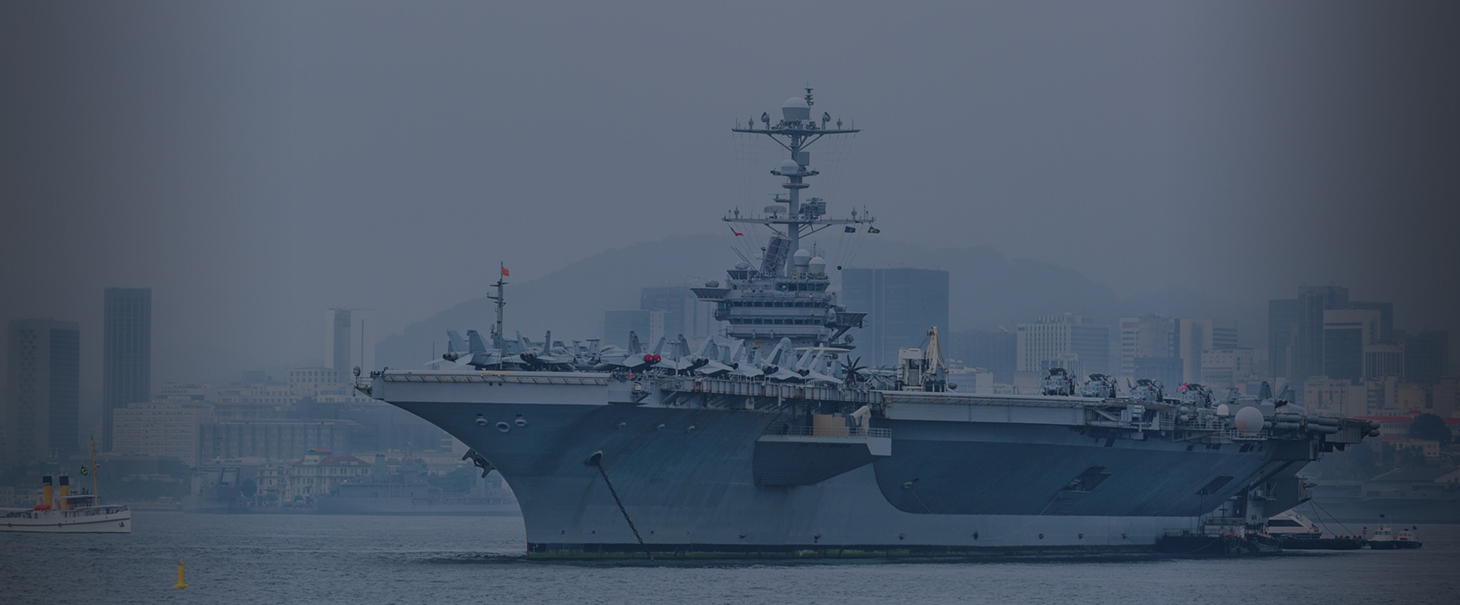
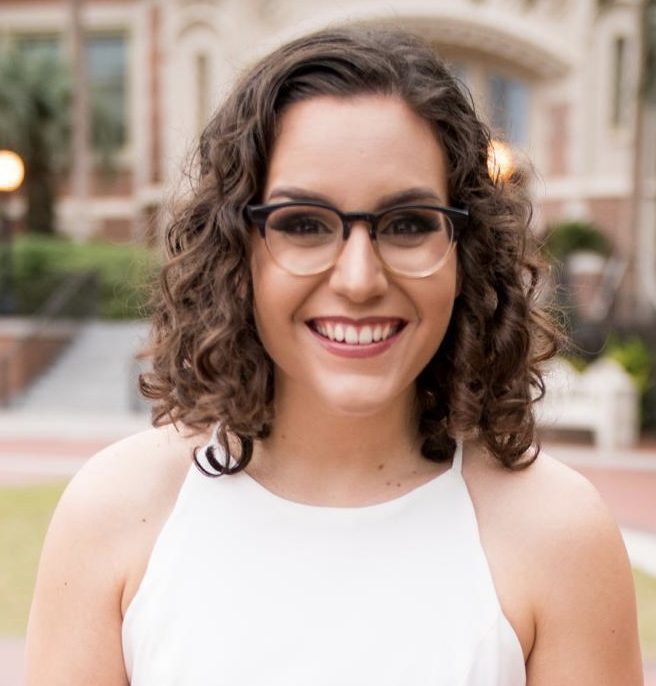 Christina Armes Hunter
Christina Armes Hunter